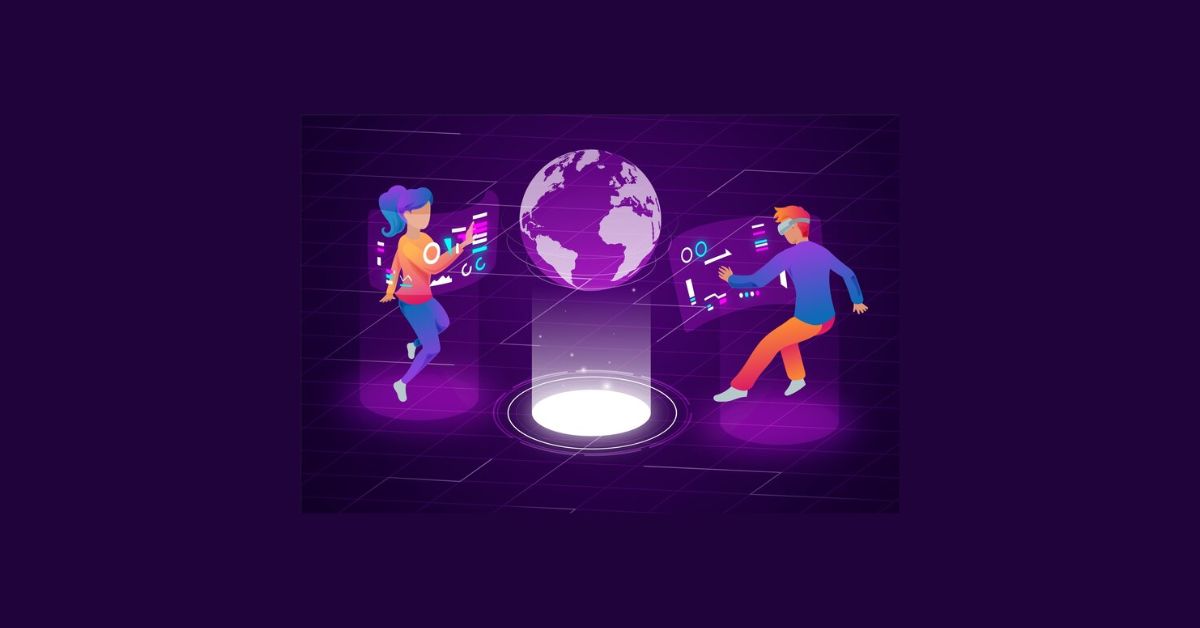The Impact of Technology on Society
 GrapesTech Solutions
GrapesTech SolutionsTable of contents
- Communication: Bridging Distances and Creating Connections
- Education: Transforming Learning and Access to Knowledge
- Work and Industry: Redefining the Workplace and Job Market
- Society and Culture: Shaping Values and Social Norms
- The Environment: Balancing Innovation with Sustainability
- Looking Ahead: Navigating the Future of Technology

Technology has become an inseparable part of our lives, shaping how we communicate, work, learn, and interact with the world. Its influence is pervasive, touching every aspect of society and transforming the way we live. As technology continues to advance at an unprecedented pace, its impact on society is profound, bringing both remarkable benefits and significant challenges.
Communication: Bridging Distances and Creating Connections
One of the most noticeable impacts of technology on society is the way it has revolutionized communication. The advent of the internet, smartphones, and social media platforms has made it possible for people to connect instantly, regardless of geographical boundaries. Families and friends separated by thousands of miles can now maintain close relationships through video calls, messaging apps, and social networks.
Social media has also given rise to global communities, where people can share ideas, collaborate on projects, and support causes they care about. Movements like #MeToo and Black Lives Matter gained momentum through social media, highlighting the power of technology to amplify voices and bring about social change.
However, the rise of digital communication has also introduced challenges. The spread of misinformation, cyberbullying, and the erosion of privacy are significant concerns that society must address. As we become more interconnected, the need for digital literacy and responsible use of technology becomes increasingly important.
Education: Transforming Learning and Access to Knowledge
Technology has had a transformative impact on education, democratizing access to knowledge and reshaping the way we learn. Online courses, e-books, and educational apps have made learning more accessible to people around the world, breaking down barriers to education. Students can now access a wealth of information at their fingertips, enabling them to learn at their own pace and in their own time.
In classrooms, technology has revolutionized teaching methods. Interactive whiteboards, educational software, and virtual reality (VR) tools are enhancing the learning experience, and making lessons more engaging and effective. Teachers can now tailor their instruction to meet the diverse needs of students, using data-driven insights to identify areas where students may need additional support.
Despite these advancements, there are challenges to be addressed. The digital divide, where some students lack access to the necessary technology, remains a significant issue. Ensuring that all students have equal access to educational resources is crucial for creating a more equitable society.
Work and Industry: Redefining the Workplace and Job Market
The impact of technology on the workplace has been nothing short of revolutionary. Automation, artificial intelligence (AI), and machine learning (ML) are reshaping industries, leading to increased efficiency and productivity. Routine and repetitive tasks are being automated, allowing workers to focus on more complex and creative aspects of their jobs.
Remote work, once a niche concept, has become mainstream, thanks to advances in communication and collaboration tools. The COVID-19 pandemic accelerated this shift, demonstrating that many jobs can be performed from anywhere with an internet connection. This has led to greater flexibility in the workplace, allowing employees to balance work and personal life more effectively.
However, the rise of automation and AI also raises concerns about job displacement. As machines take over certain tasks, there is a growing need for workers to acquire new skills and adapt to the changing job market. The future of work will require a focus on reskilling and upskilling to ensure that workers can thrive in an increasingly automated world.
Society and Culture: Shaping Values and Social Norms
Technology has had a profound impact on society and culture, influencing our values, behaviors, and social norms. Social media platforms have given rise to new forms of self-expression, allowing individuals to share their thoughts, experiences, and creativity with a global audience. This has led to the emergence of new cultural trends and movements, as well as a greater awareness of diverse perspectives.
At the same time, technology has changed the way we consume media and entertainment. Streaming services, podcasts, and online gaming have transformed how we spend our leisure time, offering a wealth of options that cater to individual preferences. However, this abundance of content has also led to concerns about screen time, digital addiction, and the impact of technology on mental health.
Moreover, technology is influencing our social interactions and relationships. The rise of online dating, for example, has changed the way people form romantic connections. While these platforms have made it easier to meet new people, they have also raised questions about the impact of digital interactions on the quality and depth of relationships.
The Environment: Balancing Innovation with Sustainability
The impact of technology on the environment is a topic of growing concern. On one hand, technological advancements have led to greater environmental awareness and the development of green technologies. Renewable energy sources, electric vehicles, and smart grids are helping to reduce our carbon footprint and mitigate the effects of climate change.
On the other hand, the production and disposal of electronic devices contribute to environmental degradation. E-waste, the fastest-growing waste stream in the world, poses significant challenges for waste management and recycling. As we continue to innovate, it is crucial to consider the environmental impact of our technological advancements and strive for sustainability.
Looking Ahead: Navigating the Future of Technology
As we look to the future, the impact of technology on society will only continue to grow. The rapid pace of technological advancement presents both opportunities and challenges that we must navigate carefully. It is essential to ensure that the benefits of technology are accessible to all, while also addressing the potential risks and ethical considerations.
For more insights into the future of technology, explore our blog post on Innovative Technology Trends for the Next Decade. This article delves into the technologies that will shape the coming years and discusses how society can prepare for the changes ahead.
In conclusion, technology has had a profound and multifaceted impact on society. It has transformed the way we communicate, learn, work, and interact with the world. As we continue to innovate, it is important to consider the broader implications of technology and work towards creating a future where its benefits are maximized, and its challenges are addressed responsibly.
Subscribe to my newsletter
Read articles from GrapesTech Solutions directly inside your inbox. Subscribe to the newsletter, and don't miss out.
Written by

GrapesTech Solutions
GrapesTech Solutions
GrapesTech Solutions is a leading Software Development Company accordance with your company's demands. Let us be your trusted partner in success.